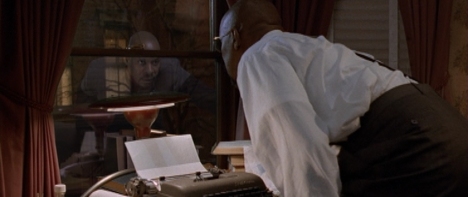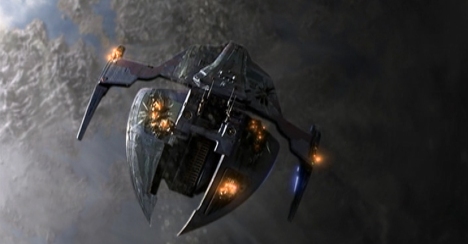The release of atomic energy has not created a new problem. It has merely made more urgent the necessity of solving an existing one. One could say that it has affected us quantitatively, not qualitatively. As long as there are sovereign nations possessing great power, war is inevitable. This does not mean that one can know when war will come but only that one is sure that it will come. This was true even before the atomic bomb was made. What has changed is the destructiveness of war.
– Albert Einstein, “Einstein on the Atomic Bomb”, The Atlantic, November 1945

Feels like coming home…
Can war ever be justified? Can war ever be inevitable? Can war ever be necessary?
These are very tough ethical questions, particularly when posed in the abstract. In fact, the vast majority of policy decisions about warfare are rooted in living memory rather than philosophical certainty. It has been repeatedly suggested that Bill Clinton’s reluctance to intervene in Rwanda was a consequence of the spectacular failure in Somalia, and that his eventual intervention in Kosovo was an act of atonement for the moral lapse in Rwanda. This is to say nothing of how Obama’s policy on Syria is shaped by Bush’s actions in Iraq and Afghanistan.

Station keeping.
The Star Trek universe is a utopia. It is a world where technology has eliminated poverty and hunger. The replicator, the holodeck, the transporter and warp drive are the building blocks of an idealistic future in which mankind seems to have found peace with itself. Dating back to Star Trek: The Motion Picture at the latest, Gene Roddenberry proposed that the franchise represented an idealised future for mankind. It was a world in which nobody ever wanted for anything, in which mankind were free to explore the universe.
This idealism is a cornerstone of the franchise. It is one of the most recognisable and universal aspects of Star Trek. This is a franchise that genuinely believes that mankind can be better than we are today. That is a large part of what makes the show so powerful, particularly in its original context. As the Doomsday Clock ticks closer and closer to midnight, Star Trek is a franchise that seems to argue that mankind has a future worth aspiring toward; a future beyond the end of the world or some corporate dystopia.

A farewell at arms.
The franchise was never particularly interested in exploring how mankind reached that level of enlightenment. Star Trek: Enterprise was nominally a prequel series for the franchise, picking up in the wake of Star Trek: First Contact, but it opened after mankind had eliminated warfare and famine and nationalism. In some ways, the franchise could seem like a rather surreal experiment. If you imagined a world without warfare or without greed or without hunger, maybe people would get along? There is undoubtedly value on this, but it feels simplistic.
In contrast, Star Trek: Deep Space Nine dared to ask tough and uncomfortable question by challenging these assumptions. If these characters did not live in a perfect world, would they still aspire to betterment? If hunger and greed were still a part of everyday life, could mankind still work to improve themselves? If warfare is the inevitable outcome of statesmanship, then how do these twenty-fourth century people retain their values and ideals? These are legitimately tough questions for the franchise to ponder, but Deep Space Nine embraces them.

Terror on Terok Nor.
It is hard to overstate just how shocking Call to Arms was on broadcast. The actual plot mechanics are fairly standard Star Trek season finale stuff. The ominous and mounting sense of dread coursing through the episode evokes The Best of Both Worlds, Part I, the first season-ending cliffhanger from Star Trek: The Next Generation. The decision to have the recurring antagonists hijack the eponymous space station recalls Basics, Part I, the cliffhanger that Star Trek: Voyager broadcast at the end of the previous television season.
However, Call to Arms is more shocking for the one element of the episode that has been building since the first encounter with the Dominion in The Jem’Hadar. It is the beginning of the franchise’s first extended war story. This is bold new territory for the franchise, something that remains controversial to this day.

“The ball is in your court.”
Continue reading →
Filed under: Deep Space Nine | Tagged: a call to arms, cliffhanger, deep space nine, Dominion War, gul dukat, Robert Hewitt Wolfe, second world war, star trek, star trek: deep space nine | 7 Comments »












































